Pulse nightclub attack survivors a year later: 'I might still be in shock'
"There's no real right answer" to how to respond, one survivor said.
— -- One year after 49 men and women were killed and 53 wounded at a gay nightclub in Orlando in the deadliest mass shooting in modern U.S. history, survivors, family and friends remember.
Independent journalist and photographer Cassi Alexandra over the year interviewed and created portraits of survivors of the massacre at the Pulse nightclub on June 12, 2016, as a new chapter in her "We Are Family" series.
Her goal was to "give the public a greater understanding of what mass shootings do to a community even after the dust settles," she told ABC News.
Brandon Wolf
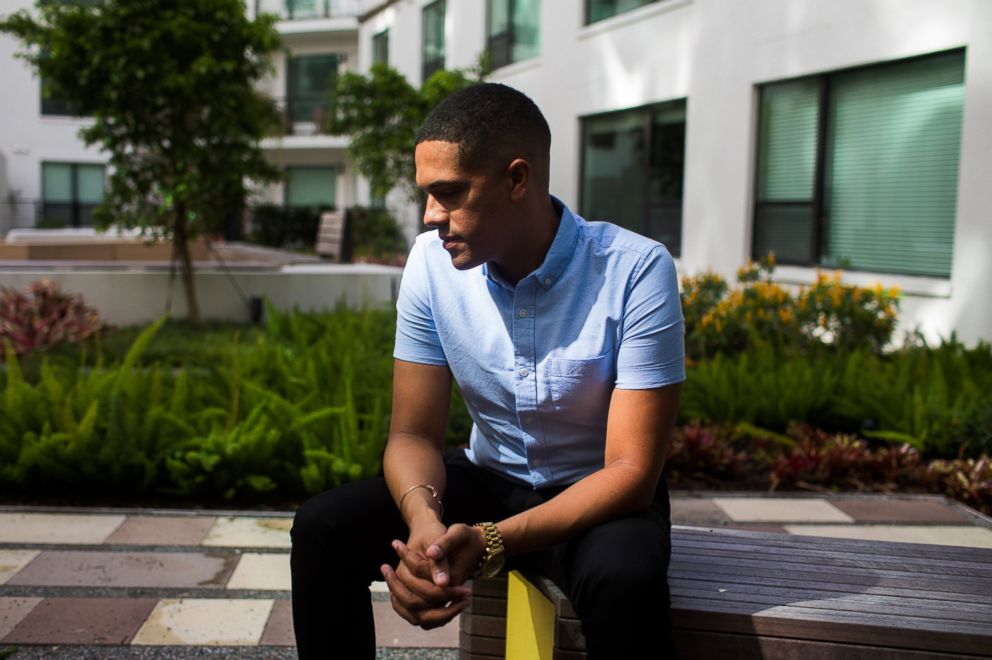
It's when you're in private that you think about the (things) that really hurt.
Brandon Wolf, 28, was at Pulse that night with Eric Borrero, Christopher Leinonen and Leinonen's boyfriend, Juan Guerrero. Wolf and Borrero had gone to the bathroom when Omar Mateen came into the club and began shooting. The two fled with a group and, after reaching safety, Wolf posted about the attack on Facebook. That alerted Christine Leinonen, Christopher's mother, that her son could be in danger.
Both Leinonen and Guerrero were killed.
"It still is very painful," Wolf said. "When you talk about Pulse and you talk about how it's impacted you, you find the topics that ... don't hurt to talk about, and you stay in that zone when you're in public. And then it's when you're in private that you think about the ones that really hurt."
Wolf said he's seen a therapist. "My true therapy, my real therapy, is reaching out and talking about it ... I think that's when I feel the most at peace is when I can talk to young people about how to make the world a better place and how to funnel their passion.”
"I am really, really inspired by the beautiful things that have come out of [the tragedy]," he said. "Because it can go any one of a number of ways, right? Tragedies like this can become a nationalist thing, they can become patriotic, they can become angry, they can become violent, but this one did none of those things ... That makes me feel a little bit more healed."
The healing also came on a personal level. Wolf had a strained relationship with his father since his coming out. After the shooting, his dad came to visit him in Florida for the first time since Wolf moved there 10 years ago.
“Some of the things that he and I went through were so bad, that I questioned whether I could ever accept myself,” Wolf said. But when father and son together visited the Pulse site, his father embraced him. “I was so proud of him for being able to say, ‘Hey I made mistakes, and I'm human too, but that has never changed the fact that I care very much about you.’”
Eric Borrero
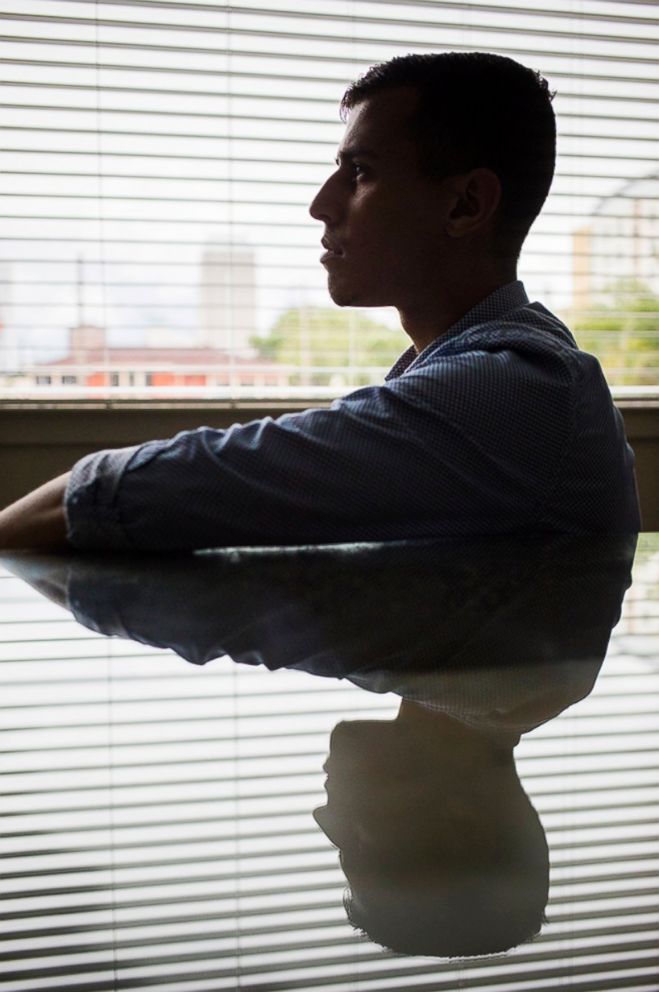
I feel like there’s no real right answer to how you’re supposed to handle the situation of that magnitude.
Eric Borrero had recently moved to Orlando when he accompanied friends Juan Guerrero, Christopher Leinonen and Brandon Wolf to the nightclub for “Latin Night.”
At around 2 a.m., shots rang out.
Borrero and Wolf managed to escape the club and spent hours walking the streets, phoning Leinonen and Guerrero repeatedly.
Borrero kept trying to convince himself it had just been firecrackers.
“I remember walking up to this one person and I was like, 'Do you know what's going on?' And he was like, 'There was a shooting,' and he said, 'Go talk to this person over there, they saw more than I did.'"
"So I went over to talk to that person, and on my way up I could tell that he was covered in blood."
Leinonen and Guerrero were among the 49 killed.
"I didn't want to tell anyone at first" about being at the club during the shooting, Borrero said. "I didn't call my parents until three to four hours after ... I just wanted to pretend like nothing happened, I'm fine. Even though I knew what was going on in my head, and the battles that I was facing in those moments."
"I feel like there’s no real right answer to how you’re supposed to handle the situation of that magnitude," he said.
"Every time I see a police officer I want to thank them for being there, and being on the front lines and helping."
Christine Leinonen
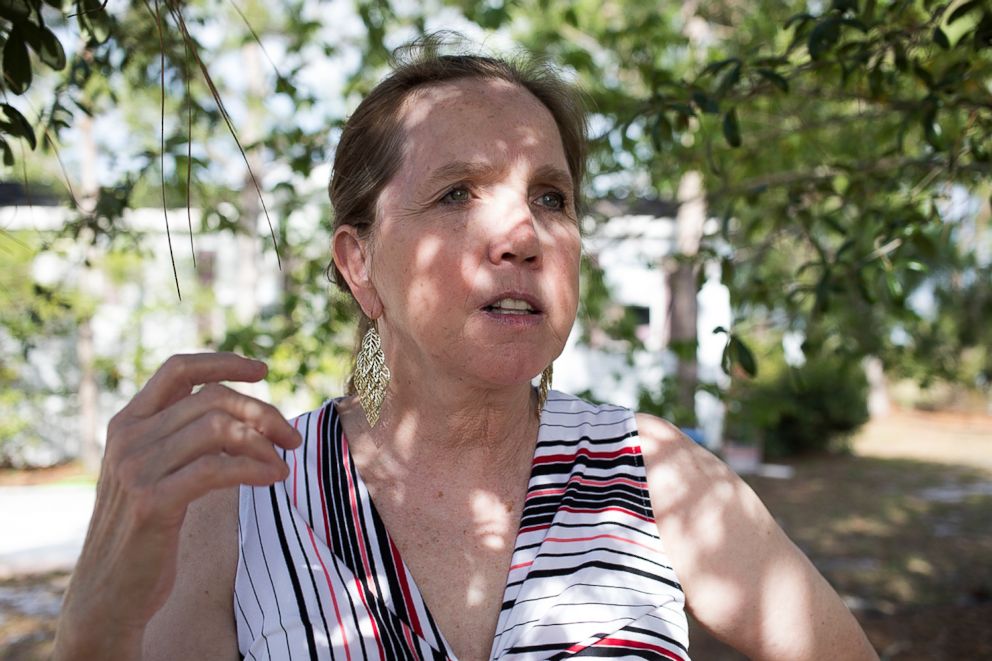
It's as if you know rationally that this massacre happened, but the brain cannot comprehend it.
Christine Leinonen learned from a Facebook post around 3 a.m. that there was a shooting at the club where her son, Christopher Leinonen, was with his boyfriend.
She went to an emergency room to look for him. Only hours later did she learn he died. Christopher's boyfriend, Juan Guerrero, was also killed.
"I might still be in shock," Leinonen said. "I know I'm often in denial. It's as if you know rationally that this massacre happened, but the brain cannot comprehend it, or I should say the heart. The heart and soul cannot comprehend that level of evil."
Leinonen, a licensed lawyer in Florida and former Michigan state trooper, said she was a "semi-active Catholic" at the time of the massacre.
"Some people, when a tragedy like this happens, they want to over-embrace religion. As if somehow then that's going to keep them from anything else happening ... I'm not going to church. I'm not. I recognize how there can't possibly be a God. There just ... It just can't be. Even though it was a feel-good for me all these years, thinking that by being Catholic, that somehow that was insulating me from any kind of trauma."
Keinon Carter
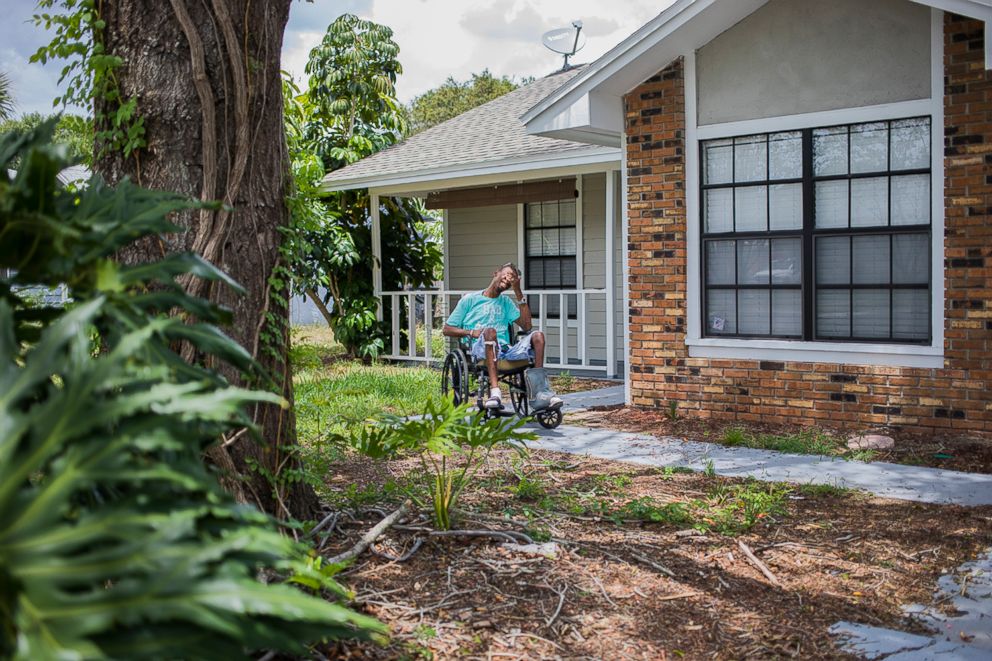
I've got to move on, I've got to push forward because nobody else can do it for me. I can't just give up.
Shot twice in the attack and declared dead twice, Keinon Carter nevertheless survived.
His friend, Antonio Brown, though was killed.
Carter went to Pulse with Brown and was waiting for him in the club's bathroom when he heard what he thought were firecrackers.
He was struck as he and Brown went to see what was going on. He was shot again lying on the floor when the gunman came back. In and out of consciousness, Carter woke up in the hospital.
He spent two months in the hospital, during which he went from weighing 170 pounds to about 90, and he has had over 20 surgeries. "I was the second to the last to leave the hospital,” he said.
“Even though I'm a victim, or a survivor – whatever the case may be – I still try to live as normal, be as normal as possible. People get depressed. Of course, I'm going to get depressed, I'm going to have my moments. I've got scars and stuff up and down my body, and stuff now that I continue to look at … a lot of stuff. I'm going to get depressed here and there, you know what I'm saying?"
"At the end of the day, I've got to move on, I've got to push forward, because nobody else can do it for me. I can't just give up.”
Demetrice Naulings
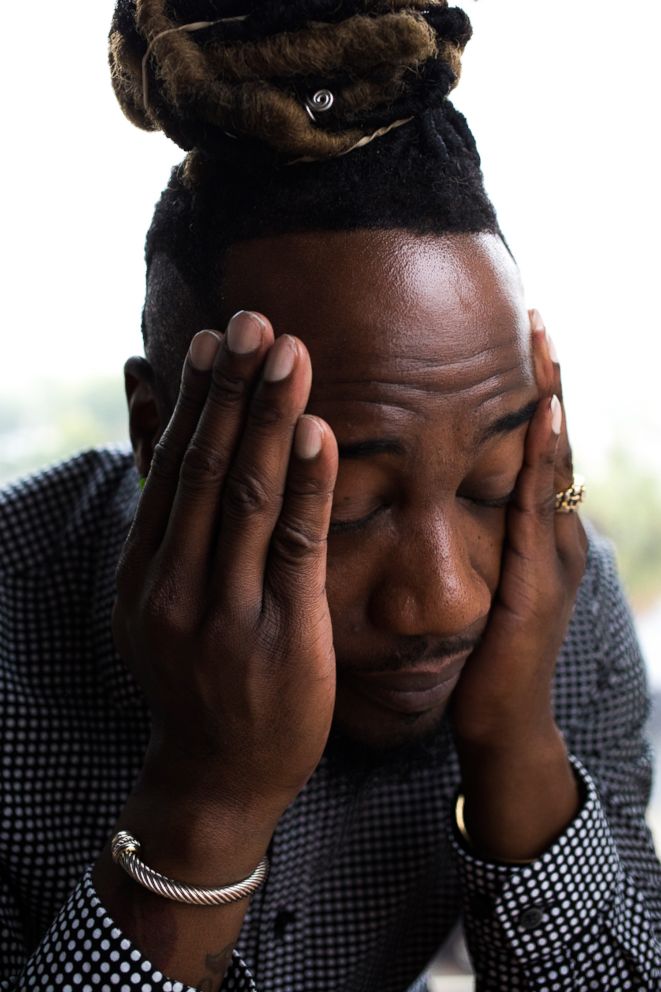
I'm left with this as being guilty because I was with him that night, I was the last person that knew him and knew his family. To touch him, literally to hold his hand.
Demetrice Naulings, 35, lost his best friend, Eddie Justice, 30, when they were both at Pulse during the attack.
"I really wasn't even supposed to go ... But that night was like any ordinary night that we decided to go to the club. We showed up late. We were going there just to have a drink, to celebrate because I was going down to Miami to work."
Shortly after Demetrice and Justice entered the bar together at last call, the shooting started. They were separated in the chaos.
"I tell the majority of people that I do interviews with that it sucks for me because I'm left with this as being guilty because I was with him that night."
"I was the last person that knew him and knew his family. To touch him, literally to hold his hand."
Ricardo Negron
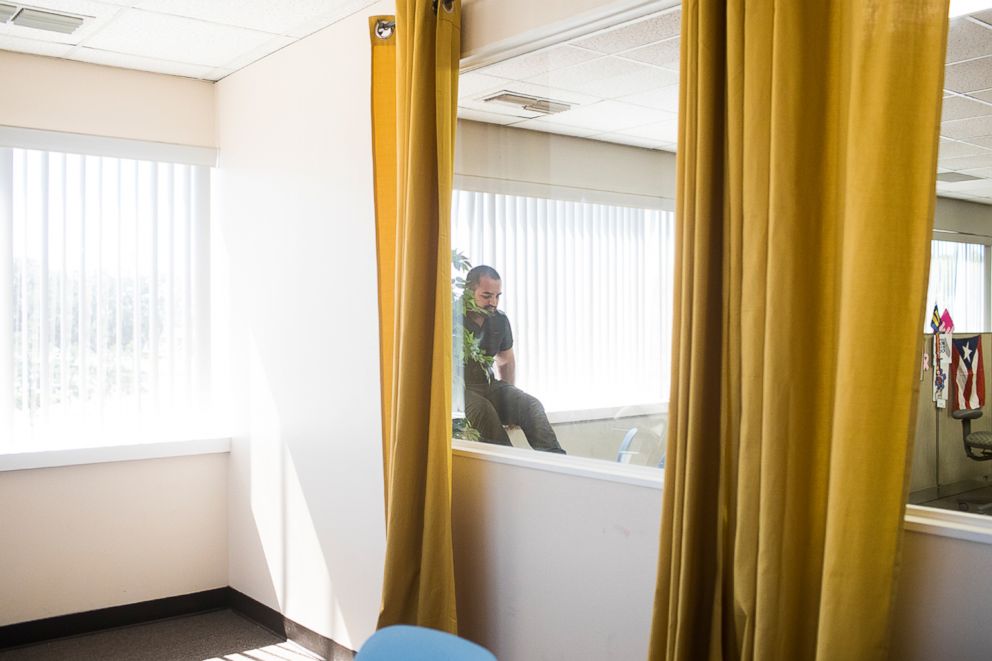
I do see a mental health counselor ‘cause I practice what I preach. I tell people that there’s help.
Ricardo Negron had been to Pulse many times prior to the night of the attack.
After his shift at work ended that night, he headed to the club for a few drinks.
Negron was just closing his tab and was near an exit when the gunman entered. He didn’t immediately register that the sound from the gunfire wasn’t part of the club's music.
“I was fortunate to have been close to an exit that led to the patio area. So, at some point after the shooting started, and there was a break in the shooting, I was able to get out," he said.
Negron is now program director for Proyecto Somos Orlando (Project We Are Orlando), created after the attack to address the needs of the LGBTQ Latino population. When the program started in August 2016, it focused primarily on survivors and family members of victims. Now, it serves a wider swath of the community.
“I do see a mental health counselor ‘cause I practice what I preach," Negron said. "I tell people that there’s help, so I also take use of that help.”
Emily Addison
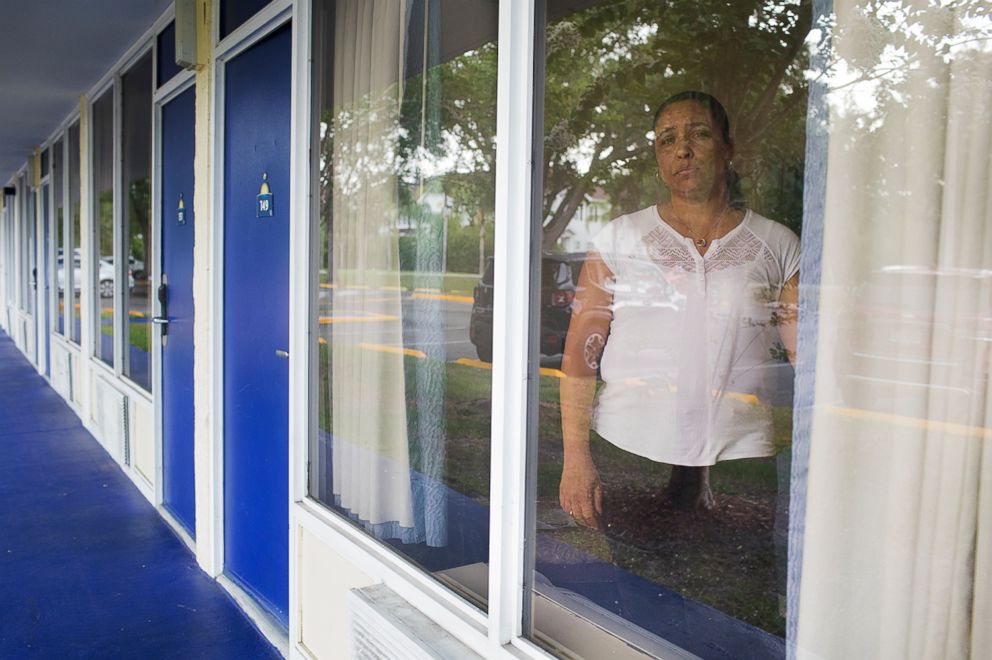
It makes me feel like I lost her, not just once by the shooter, but twice by the community.
Some who lost people in the massacre say they haven't felt the benefit of community support.
Emily Addison, 38, told Cassi Alexandra that she and Deonka "Dee Dee" Drayton started dating in 2009, but were separated at the time that Dee Dee was killed in the Pulse shooting. As a result, she said her loss and grief haven't been recognized.
"All these signs about 'Orlando United' and you know, if feeling like we're supposed to be a whole community, I have felt nothing but the total opposite of that since June 12th," Addison said. "I have felt like an outsider of that ... It absolutely hurts because the struggles that constantly play in my head that I went through with her as far as making sure that each other was happy or whenever she was in a tight situation ... And now I'm being treated like none of that matters ... It makes me feel like I lost her, not just once by the shooter, but twice by the community."
Addison lives with her three children outside the Orlando area, and she works at Walt Disney World. Disney, which owns the amusement park, is parent of ABC News.
ABC News' Phaedra Singelis contributed to this report.




